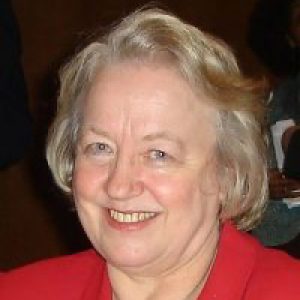Beyond Tired: Fatigue and Autoimmune Disease

Beyond Tired: Fatigue and Autoimmune Disease
Since founding this organization more than 30 years ago, I’ve talked to thousands of autoimmune patients. One of the things they nearly all have in common is fatigue. Fatigue is not just tired. Fatigue is composed of both physical fatigue and mental fatigue. Unlike being tired, fatigue is rarely resolved with rest or sleep. For many, fatigue significantly affects their daily activities, including the ability to work and spend time with friends and family. Fatigue can lead to depression and diminished quality of life.
The Autoimmune Association has heard from people who describe their fatigue in no uncertain terms:
- It’s DEBILITATING! It feels like my body is lugging around a TON OF BRICKS
- Because of my fatigue, I am not the person I once was
- It’s bone-achingly, spirit-sapping heaviness. And no amount of sleeping gets rid of it
- For those who didn’t hear it the first thousand times, I AM NOT LAZY
- It interferes with personal hygiene activities, cooking even simple meals, cleaning the home, shopping for groceries, taking care of business, participating in recreational activities, getting together with friends and relatives, even reading a book, simply everything that most people take for granted
- It’s like quicksand
Autoimmune disease is characterized by enhanced inflammation in the body, created by the release of cytokines when the immune system responds to a perceived pathogen. Cytokines are responsible for coordinating the attack against pathogens, and they also cause inflammation. Because the immune system is overreactive in autoimmune disease, cytokines are likewise elevated, creating high inflammation and fatigue.
To better understand the effect of fatigue, the Autoimmune Association recently asked autoimmune patients how fatigue affects their lives. More than 1,000 respondents overwhelmingly indicated fatigue has a negative impact, as illustrated by these figures:
- 99% said fatigue impacts my quality of life
- 92% said fatigue impacts my family relationships
- 91% said fatigue has caused depression for me
- 89% said fatigue impacts my career/ability to work
- 56% said fatigue affects my ability to parent
Fatigue is not well understood by the medical community and effective treatment options are limited. Among patients who talked to their doctors about their fatigue, less than 30% said their doctors prescribed or suggested treatment. However, there is considerable research currently underway that aims to better understand the mechanisms behind fatigue, opening the doors for better ways to treat it.
One of the most important aspects of controlling fatigue is learning to pace your physical activity. It’s easy to overdo it when you’re feeling good, but you end up in cycle of high activity as you try to catch up on what you didn’t accomplish when you were fatigued. This is then usually followed by a few days of extreme fatigue. This pattern keeps the disease active. Learning to pace your activity is important. Don’t overdo it even when you’re feeling well. Having presented at hundreds of workshops on the topic of coping, I found almost universal agreement that this is a harmful pattern of behavior among patients, and it’s also been observed by people around patients.
When fatigued, you may find some relief through getting quality sleep, practicing mindfulness and relaxation techniques, talking to a mental health professional, and resting throughout the day. Some people have found that supplements such as vitamins B and D can help (talk to your doctor before starting any new supplement) and others have found that light exercise helps. I encourage you to try different techniques and find what works for you.
Fatigue can be one of the most frustrating symptoms of an autoimmune disease, especially because others don’t understand why you’re still fatigued – and sometimes, even more so – after a “good night’s sleep.” When fatigue gets you down, rely on your autoimmune community for support. Attend the Autoimmune Community Summit in October and chat with other autoimmune patients in the discussion boards. Follow our social media pages for inspiring stories. Subscribe to our emails and read about the latest research.
And most of all, be gentle to yourself.
Virginia
Join our email list
Receive the latest blog articles, news, and more right to your inbox!
Related articles you might be interested in

Remembering Eula Hoover




RA Research Results Funded by the Virginia T. Ladd Young Investigator Program




Founder’s Corner: Making of the Autoimmunity + COVID-19 Colloquium
Find more resources on autoimmunity
Learn more about autoimmunity, diagnosis tips, how to find a physician, and more.